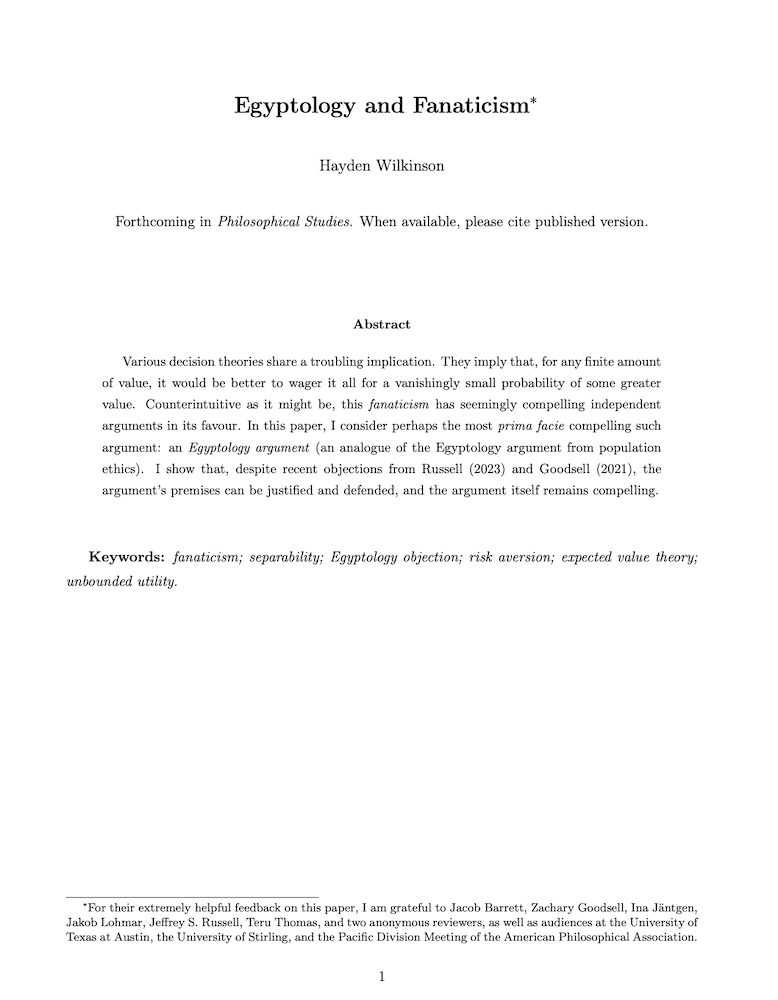Egyptology and Fanaticism
Hayden Wilkinson (Global Priorities Institute, University of Oxford)
GPI Working Paper No. 12-2023, forthcoming in Philosophical Studies
Various decision theories share a troubling implication. They imply that, for any finite amount of value, it would be better to wager it all for a vanishingly small probability of some greater value. Counterintuitive as it might be, this fanaticism has seemingly compelling independent arguments in its favour. In this paper, I consider perhaps the most prima facie compelling such argument: an Egyptology argument (an analogue of the Egyptology argument from population ethics). I show that, despite recent objections from Russell (2023) and Goodsell (2021), the argument's premises can be justified and defended, and the argument itself remains compelling.
Other working papers
What power-seeking theorems do not show – David Thorstad (Vanderbilt University)
Recent years have seen increasing concern that artificial intelligence may soon pose an existential risk to humanity. One leading ground for concern is that artificial agents may be power-seeking, aiming to acquire power and in the process disempowering humanity. A range of power-seeking theorems seek to give formal articulation to the idea that artificial agents are likely to be power-seeking. I argue that leading theorems face five challenges, then draw lessons from this result.
Towards shutdownable agents via stochastic choice – Elliott Thornley (Global Priorities Institute, University of Oxford), Alexander Roman (New College of Florida), Christos Ziakas (Independent), Leyton Ho (Brown University), and Louis Thomson (University of Oxford)
Some worry that advanced artificial agents may resist being shut down. The Incomplete Preferences Proposal (IPP) is an idea for ensuring that does not happen. A key part of the IPP is using a novel ‘Discounted Reward for Same-Length Trajectories (DReST)’ reward function to train agents to (1) pursue goals effectively conditional on each trajectory-length (be ‘USEFUL’), and (2) choose stochastically between different trajectory-lengths (be ‘NEUTRAL’ about trajectory-lengths). In this paper, we propose…
Intergenerational equity under catastrophic climate change – Aurélie Méjean (CNRS, Paris), Antonin Pottier (EHESS, CIRED, Paris), Stéphane Zuber (CNRS, Paris) and Marc Fleurbaey (CNRS, Paris School of Economics)
Climate change raises the issue of intergenerational equity. As climate change threatens irreversible and dangerous impacts, possibly leading to extinction, the most relevant trade-off may not be between present and future consumption, but between present consumption and the mere existence of future generations. To investigate this trade-off, we build an integrated assessment model that explicitly accounts for the risk of extinction of future generations…

